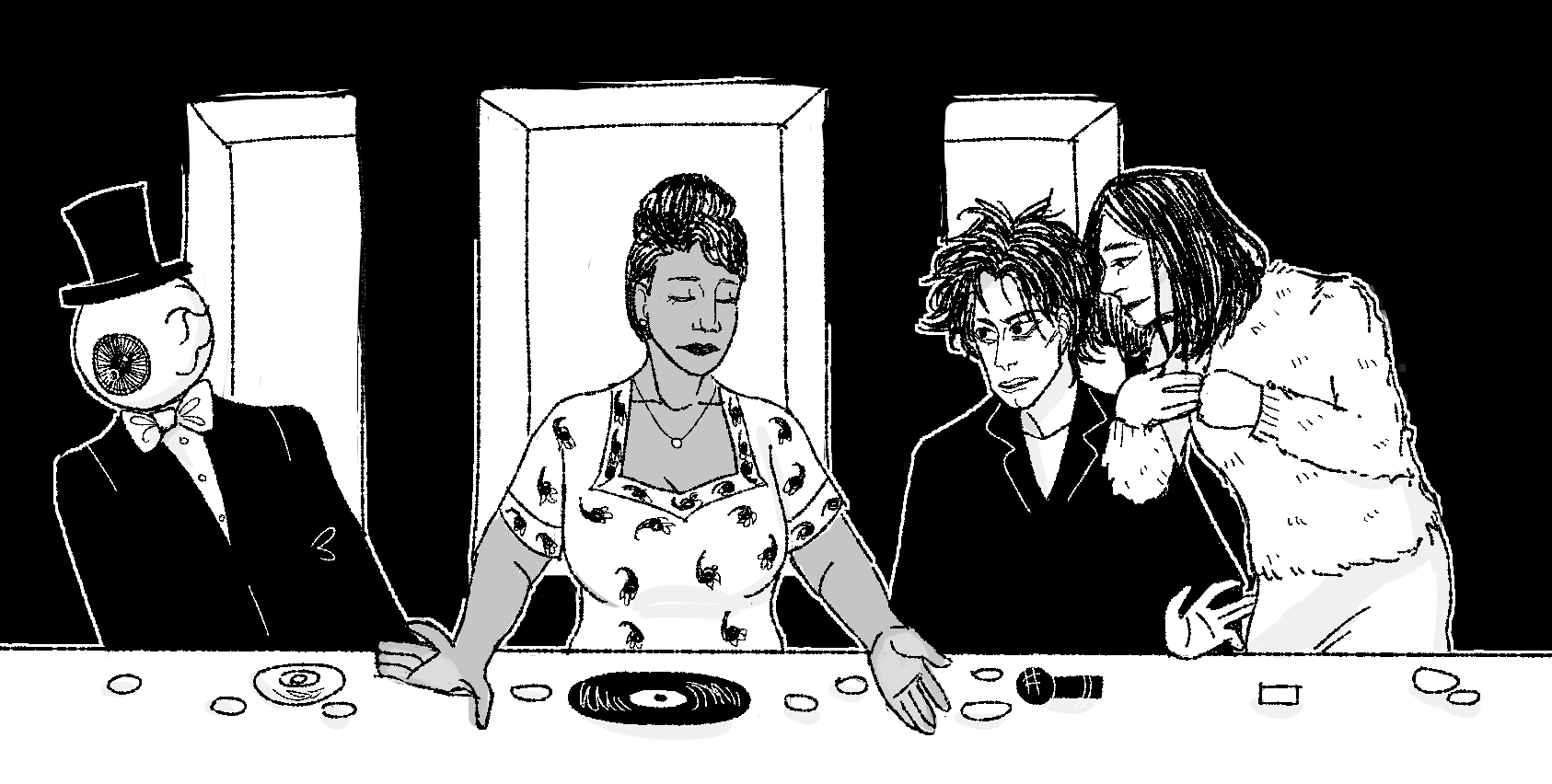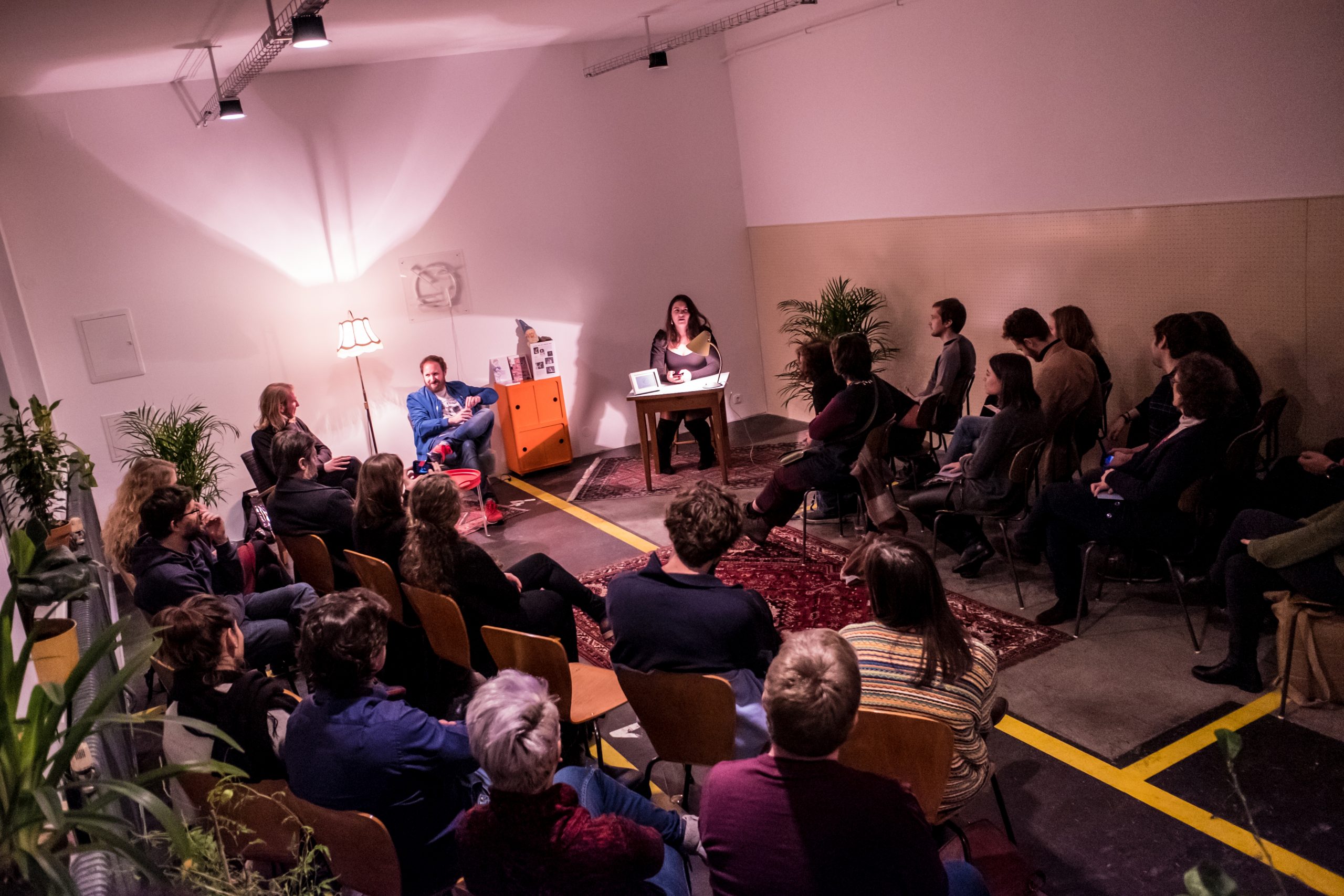Das Jahrzehnt ist vorbei, wir blicken zurück auf eine Vielzahl von großartigen Platten. Heute werfen wir einen Blick auf 2018, quer durch alle Genres, von Daughters über SOPHIE bis zu Zeal & Ardor.
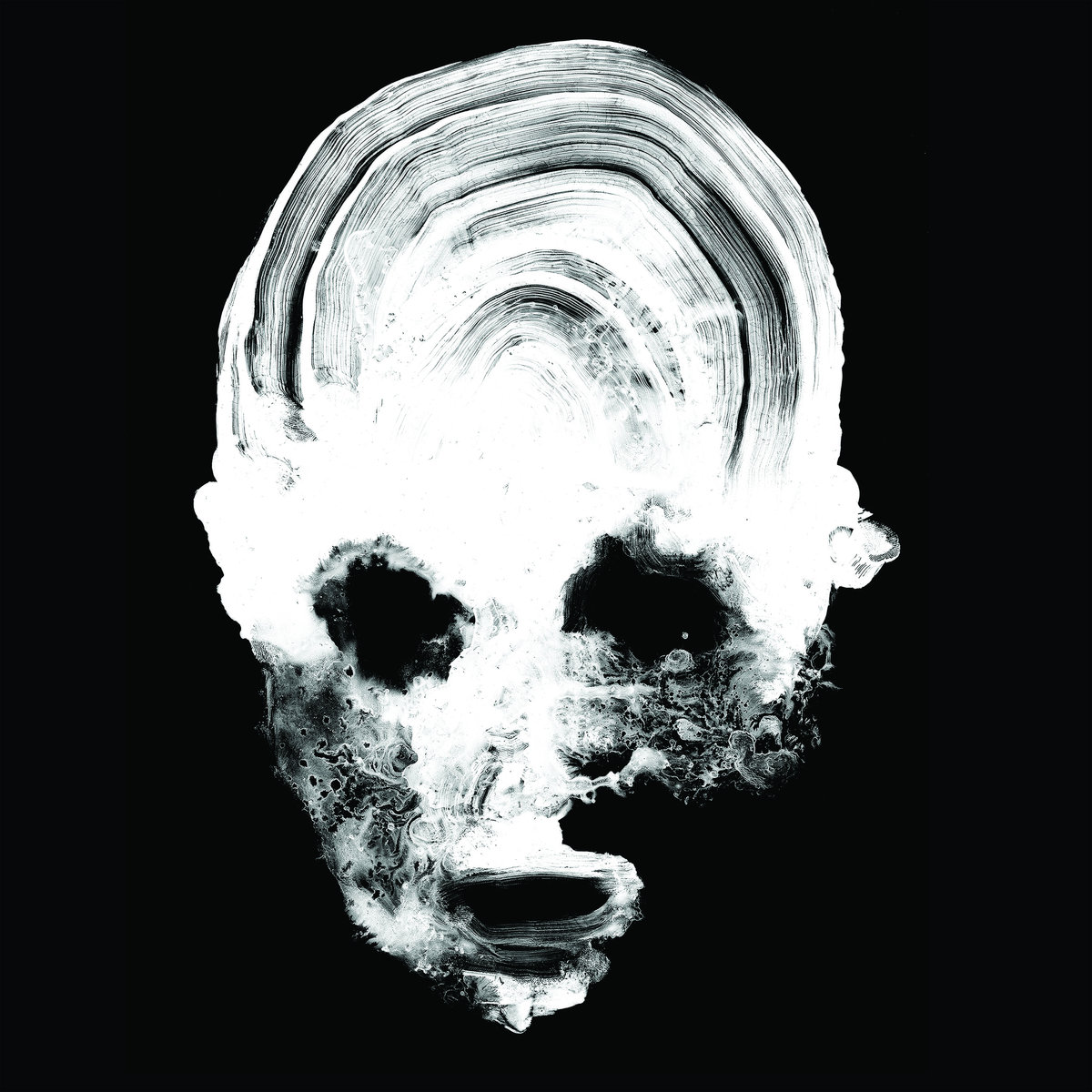
Daughters – You Won’t Get What You Want (Ipecac, 2018)
After a nearly ten year hiatus, Daughters come back in full swing, showcasing their brilliant evolution from sonic onslaught into profound, mature songwriting. Hailing from Rhode Island’s noise and hardcore scene, their comeback turned heads when You Won’t Get What You Want’s lead single turned out to be almost as long as (but undoubtedly more effective than) their entire debut album. Their progress is apparent in every regard – the quality of the writing, composition and execution of the album is undeniable. From start to finish, the album is absolutely relentless: from the industrial-tinged, nightmarish ,,City Song“ to the anguished shrieks and harrowing synths of ,,Guest House“, the album’s consistently dreary, caustic atmosphere is as terrifying as it is cathartic. Its oppressive, punishing heaviness is reminiscent of industrial giants like Throbbing Gristle, Suicide and Swans. Narrating the experience are Alexis Marshall’s surreal lyrics, delivered in a manner that’s often been described as “Nick Cave being tortured”, range from manically disorienting to blindingly clear. Moments where they take the form of a vague short story are some of the album’s most potent and memorable – the palpable restlessness and anxiety of “Ocean Song”’s protagonist and the agonized, desperate beckoning of “Guest House” are bone-chilling.
The entire record has an incredibly incisive quality: despite its noisiness and unflinching ferocity, its sound is far from messy or muddled. Every single musical element on the record sounds razor-sharp, crisp and precise, from the blistering, gothic guitars on the bridge of “Satan in the Wait”, to the tense, piercing synth stabs on “The Reason They Hate Me”, to the sinister bossa nova-flavored rhythm on “Daughter”. All in all, You Won’t Get What You Want is laser-focused, airtight, and an utterly disturbing, immersive experience, making it one of the most memorable and significant releases of 2018.
– Kata

Earl Sweatshirt – some rap songs (Tan Cressida, 2018)
Over the span of the past decade California rapper Earl Sweatshirt solidified himself besides Tyler, the Creator and Frank Ocean, as one of the more promising and talented figures to come out of the now-sort-of-defunct Odd Future collective. By sonically and thematically maturing with each consecutive album in his catalog, while simultaneously subsiding the underlying glimpses of juvenile anger prevalent in those adolescent years which underscored his earlier body of work, Earl delivered with some rap songs his most artistically refined, as well as emotionally potent project yet.
On this tightly constructed 25-minute album, form and structure serve only a secondary role and are stripped-back to allow more emphasis on evoking an overall mood and tone, which consequently confronts the listener with the task of grasping more on elusive abstractions and ideas than straightforward coherence and cohesion. A listening experience built around a concept as such can sometimes come off as „pseudo-enegmatic“ for lack of a better word, if approached and executed in a shoddy ill-conceived manner, thus backfiring and failing, however Earl in some rap songs has with his lyricism and production choices, an exceptionally sharp sense in being strikingly vivid and poignant in this approach, which in turn saves him from falling into such an unpleasant pitfall.
When it comes to the production, a good chunk of these tracks have their crux primarily rooted in chopped and looped Lo-Fi Soul and Funk samples, though structures and textures permanently feel fuzzy, muddy and blurry by design; occasional intercuts of distortion and glitches help to additionally reinforce these traits. It is an album imbued with a rough-around-the-edges, slightly off-kilter and unorthodox aesthetic and truly shines through its unpolished sonic imperfections which further accentuate Earl as an emcee. He uses the backdrop of this production as a canvas for his sporadically scattered stream-of-consciousness/free-association type of rhymes to find some sort of adequate artistic outlet. While listening to this record, one might be inclined to presume Earl feels as discombobulated and out of touch with himself and the reality around him as the album cover might suggest which is certainly not a far-fetched statement, given the diffuse atmosphere this album elicits combined with its prominent and reoccurring themes that are channeled throughout such as substance abuse, anxiety, depression and a mostly absent and passed away father figure.
Indeed, the parallels to one of Earl’s most significant and substantial influences MF Doom are also more apparent than ever here. On a more trivial note, the straight-up verses, no-hooks brevity of these Rap-vignettes plus Earl’s similar rap style, paired with the often dark subject matter has garnered the album a reputation for being called „Sadvillainy“ among fans — obviously to no surprise. And generally speaking, hopefully also a reputation as we look back on the musical landscape of the 2010s, as one of the most essential Experimental and Abstract Hip Hop albums to come out of that decade.
– Fatmir

IDLES – Joy as an Act of Resistance. (Partisan, 2018)
A living paradigm of protest with the main theme of “All is love” – the boys from Bristol are hard but cordial.
In 2017 IDLES released their debut album Brutalism (Balley, 2017), that already knocked some critics’ socks off.
Just 18 months and lots of touring later, Joy as an Act of Resistance was released on August 31st, 2018 and the sheer power of their edgy and honest songs once again became a talking point.
The whole era of Punk was dominated by strong imagery and shocking personalities. Songs were not about personal feelings or everyday life, but our society in a mostly cynical and pessimistic manner. Protesting against authority and returning music to the streets.
IDLES; however, reinvented the picture of Punk as Robin Hood in pins and leather.
Gone are the clichés of studded clothes, mohawks and severe faces.
What stays is the music’s dynamic and motoric.
Powerful riffs, energetic drums and a pulsing bass meet songs about violence, love, loss and joy.
No song better captures their novel style than the opener “Colossus”. The two-parter slowly builds up, starting with drummer Jon Beavis merely tapping the drum hoop; increasing the density with every verse until a final blowup.
Throughout the record the whole band is at an energetic peak. Beavis battering the drums like there is no tomorrow, Mark Bowen and Lee Kiernan slicing through countless strings and Adam Devonshire constantly pushing you forward with his pulsing bass.
This raw energy is buoyed by Joe Talbot, a truly witty and riveting character.
If the vast musical performance hasn’t enthralled you just yet, his ingenious lyrics will.
The brilliantly-titled “Never fight a Man With a Perm” logs a bar brawl with lyrics as hard as an actual punch in the face. With Talbot glibly delivering line after line, the opponent might not find time to argue back: “You are a catalogue, plastic Sinatra. A try-hard, you should’ve tried harder”.
In tracks like “Danny Nedelko” and “Great” he takes on the racist rhetoric rising in today’s Great Britain, offering countless unifying lines.
With lyrics like “He’s made of bones, he’s made of blood. He’s made of flesh, he’s made of love. He’s made of you, he’s made of me. Unity” (,,Danny Nedelko“) or “Islam didn’t eat your hamster. Change isn’t a crime.” (,,Great“) IDLES are declaring their solidarity with immigrants, while manifesting their anger towards the current lurch to the right.
But Talbot doesn’t solely outward his vexation with modern society.
The ballad “June” finds him mourning the stillbirth of his child, with him groaning “dreams can be so cruel sometimes” before wailing Hemingway’s shortest horror story: “baby shoes for sale, never worn.”
This heartbreaking centerpiece is followed by “Samaritans”, a song shattering the “mask of masculinity” in their characteristically biting way. IDLES distinctly seek to offer hope towards the end of their album. “Television” is probably the best marker of their vision for a better future. “If someone talked to you the way you talk to you, I’d put their teeth through, love yourself”, underlines their message of loving yourself and others.
After all, IDLES are more than just the punk band they’re always pigeonholed as.
Their interpretation of this edgy genre combined with a beating heart and soul, intelligence and humour, and being relatable for people all over the world, makes Joy as an Act of Resistance truly one of the most important albums of this decade.
– Anja
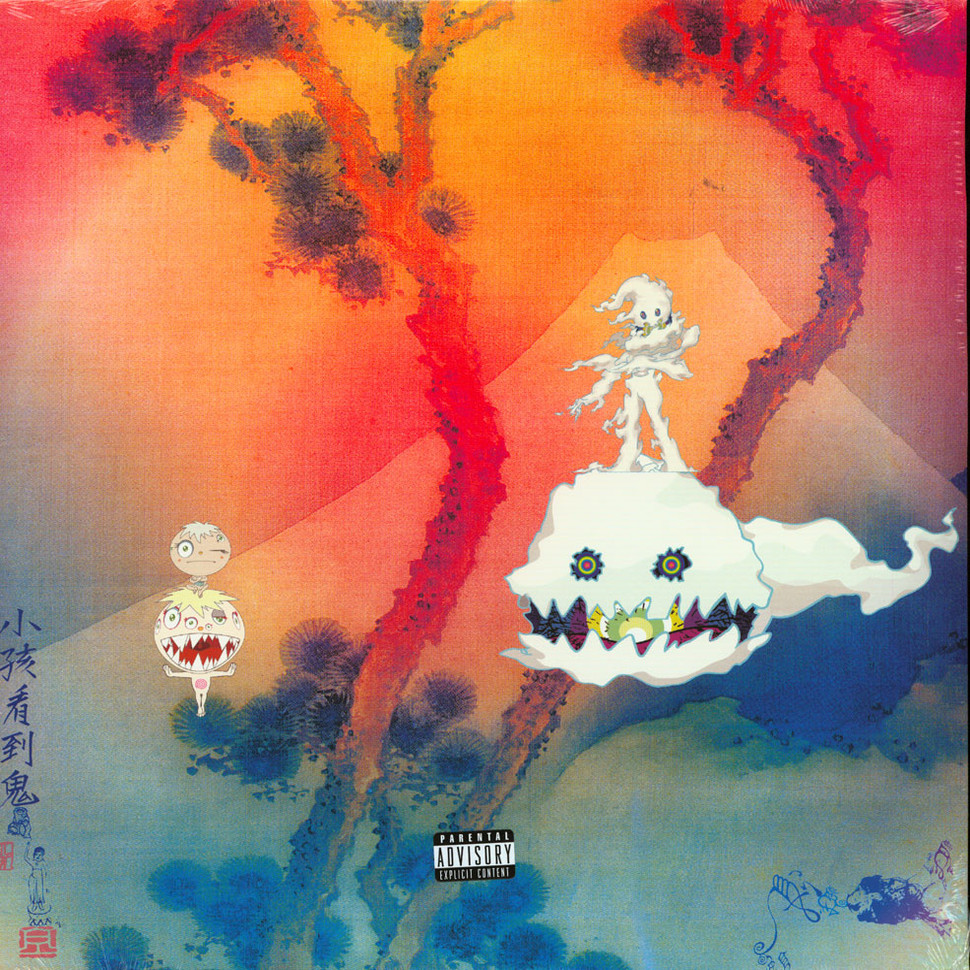
Kids See Ghosts – Kids See Ghosts (Good, 2019)
Only a week after the surprisingly underwhelming (yet somehow charmingly intimate and calm) Ye (Good, 2019), Chicago’s Hip Hop prodigy came out with Kids See Ghosts, a record that technically has no right to be as phenomenal as it is.
The eponymous release of the supergroup, consisting of long-time collaborators Kanye West and Kid Cudi, features Psychedelic-inspired instrumentals, corny lyrics, hysteric vocal outbursts, even a Pusha T feature – yet it all falls into place. Being equally short as the other Wyoming session records and clocking in at around 24 minutes, there is not a single second wasted. This is brightly coloured joy and unhinged ecstasy, condensed into a 7-track Hip Hop record.
– Gaps
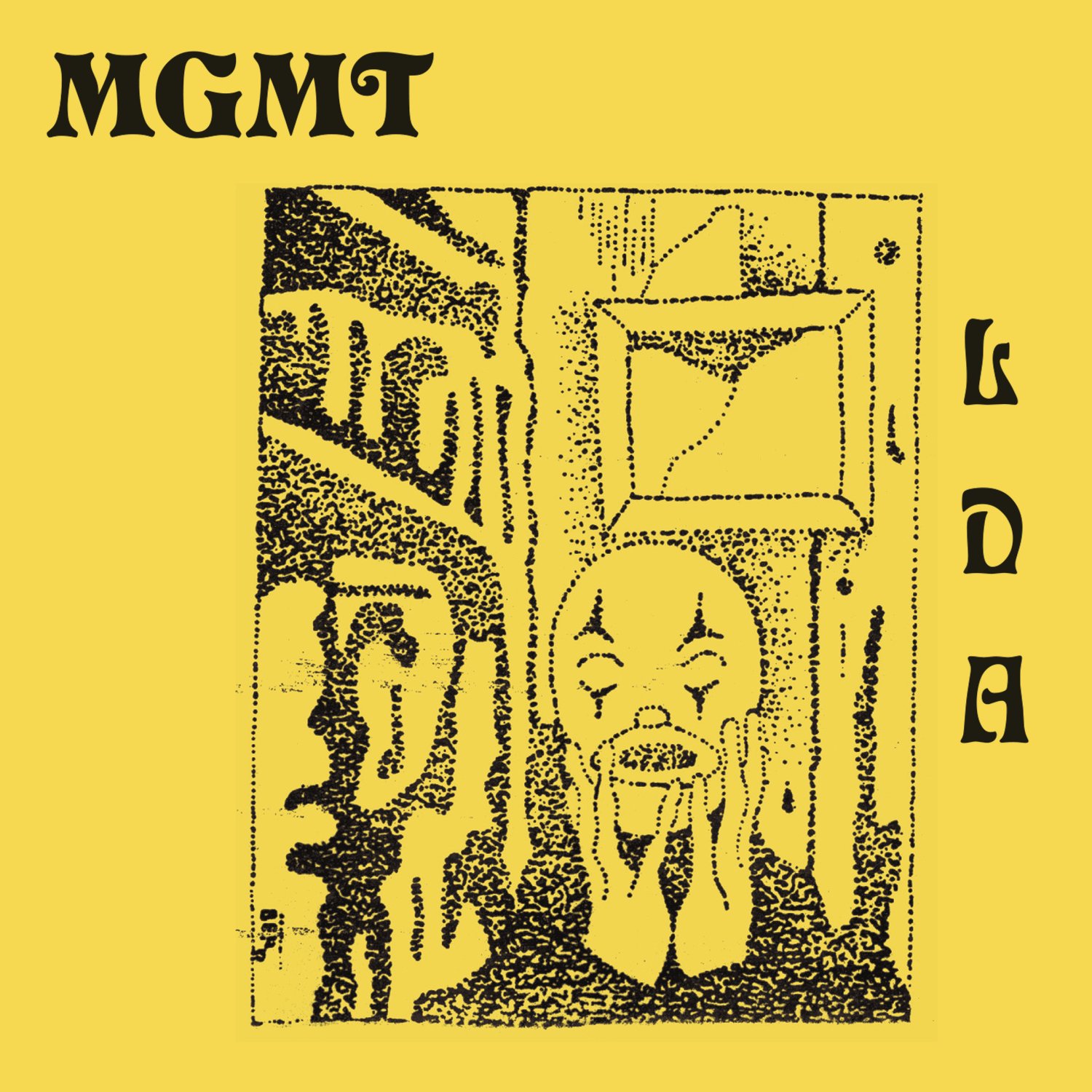
MGMT – Little Dark Age (Columbia, 2018)
‚,Get ready to have some fun!‘’- gleich mit der ersten Zeile bereiten uns MGMT klar darauf vor, was wir uns von diesem Album erwarten dürfen. Auch wenn der Song ,‚She works out too much‘‘ dann einen ironischen Text auf die Selbstoptimierungsgesellschaft bringt, macht er doch wie das ganze Album auch sehr viel Spaß. Kurze Sequenzen von Home-Workout-Videos lockern die zum Teil ernstgemeinten Aufrufe, das Handy auch mal liegen zu lassen, witzig auf.
Nach etwa zehn Jahren wird dem Publikum mit Little Dark Age wieder ein Projekt vorgelegt, dass an die bekannten Alben Oracular Spectacular (Sony 2007) und Congratulations (Sony 2010) anknüpft. MGMT, das ist das Synthpop-Duo Andrew VanWyngarden und Ben Goldwasser, besinnt sich so auf ihre Anfänge zurück. Zwischenzeitlich kamen Alben auf den Markt, mit denen sie klar in eine experimentelle Richtung gingen und zeigten, wie egal ihnen kommerzieller Erfolg ist. Die Kritik im Guardian zu diesem Album beginnt bezeichnenderweise mit den Worten „What do you do after you’ve committed career suicide?“. Hier zeigt sich, dass man Jahre später noch ein tolles Album wie das vorliegende raushauen kann und so von den Totgeglaubten/-gesprochenen wiederaufersteht. Während die Gruppe in den 2000ern sehr schnell populär wurde, gab es in ihrer Diskographie danach keine wirkliche Kontinuität. Jedes Album ist ein neues Juwel, auch wenn die letzten zwei Alben von ‚der Kritik‘ eher nicht angenommen wurden. Sie beweisen, dass sie sich trotz einiger wirklich bekannt gewordenen Tracks wie ‚,Kids’‘ nicht für den Mainstream interessieren.
Die Themenpalette dieses Projekts ist weit, beispielsweise wird in ‚TSLAMP‘ (Time spent looking at my phone) von Handysucht gesungen oder von Freundschaft, wie in dem Track ‚Me & Michael‘. Dieser kommt ganz in einem authentischen 80s-Pop-Aufzug daher. Ganz im Gegensatz dazu steht der nächste Track, der vielmehr auf Konfrontation und Streit aus ist. An manchen Stellen wird er auch fies, bleibt dabei aber auch sehr lustig: ‚,When you die’‘. Deutlich hört man hier die Produktion und Mitautorschaft von Ariel Pink. Dessen Einflüssen bemerkt man beim aufmerksamen Zuhören durch das gesamte Album. Auch Pink Floyd und The Cure zählen zu den Einflüssen von MGMT. Besonders gut gelungen und komisch sind die Lyrics in dem Song ‚,When You’re Small’‘. Hier werden Metaphern über mentale Gesundheit gebaut. Der Zusammenhang zwischen dem eigenen Befinden und der Wirkung auf die Welt wird hier mit körperlicher Größe verglichen. Fast schon zynisch wirken da die Zeilen: ‚,But when you’re high / It’s easier to fight / When you’re high / You don’t have to know why‘‚.
– Magdalena

SOPHIE – Oil of Every Pearl’s Un-Insides (Future Classic, 2018)
Selten tritt ein*e Künstler*in mit solch einer schillernden Intensität in das Rampenlicht ihres Debütalbums, wie die progressive Klang-Künstlerin SOPHIE. Mit einem kompromisslosen Schwall aus purer Kreativität flutet sie jeden Moment von Oil of Every Pearl’s Un-Insides und verwandelt dieses zu einer exzentrischen Welt irgendwo zwischen glitzernder Utopie und düsterer Dystopie. Mit dem gleißenden Eröffnungs-Statement „It´s Ok to Cry“ zeigte SOPHIE zum ersten Mal ihre beinahe ungefilterte Stimme, sowie ihre Erscheinung in einem Musikvideo und brachte dabei ein schillerndes Statement der Selbstliebe mit sich. Darauf folgend schleudert SOPHIE dem*r Hörer*in mit einem beinahe gewalttätigen Maximalismus die zwei Klang-Kolosse „Ponyboy“ und „Faceshopping“ entgegen. Komplett losgelöst von jeglichen musikalischen Konventionen reitet sie mit einer unaufhaltbaren Kraft durch puren musikalischen Wahnsinn. Direkt danach wechselt das Album den Gang hin zu zwei eleganten Art-Pop Balladen, welche mühelos durch die glasklare Luft zu schweben scheinen. Als das zentrale Herzstück der kunterbunten Utopie präsentiert sich das Bubblegum-Pop Meisterstück „Immaterial“, welches ab seiner ersten Sekunde ungefilterte Freude versprüht und die Hörer*innen ekstatisch durch ihre Zimmer springen lässt. SOPHIEs Erstlingswerk Oil of Every Pearl’s Un-Insides entpuppt sich in seiner Gesamtheit als eine schillernde postmoderne Dekonstruktion des Ich und als Hymne für jene, die im Mahlstrom der 2010er ihr Selbst rekonstruiert haben.
– Dani
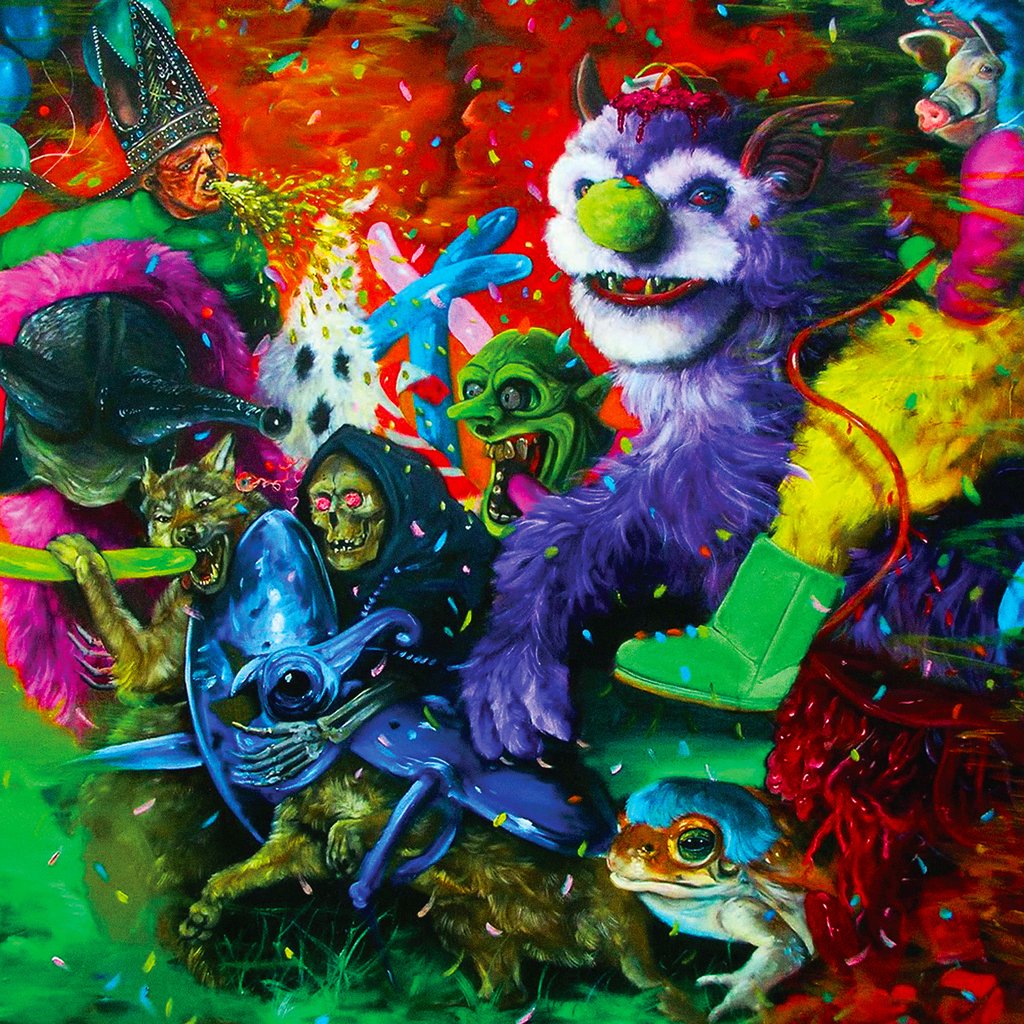
Tropical Fuck Storm – A Laughing Death in Meatspace (TFS, 2018)
Almost everything you need to know about Tropical Fuck Storm can be gleaned from simply looking at their name. For starters, the tendency to just randomly insert f-bombs into the middle of terms is almost immediately recognizable as Australian. And if it represents nothing else, A Laughing Death in Meatspace is a prime example of what Australian, in particular Melbourne, Art Punk has to offer. With the four members of the band arriving from successful acts like The Drones, Mod Con and High Tension and coalescing into something that’s removed from these acts with its utter weirdness, noise and relentless dive into apocalyptic soundscapes.
Another quality of the record which is inferred by the band name alone is its sonic leanings towards the cacophonous. Prioritising discordant guitar loops over propulsive percussion and allowing the space for the true meaning of sporadic DIY- punk music to be explored.
However, one thing about this landmark Melbourne Punk record which cannot be gleamed through the moniker of the band is its surprising fragility. As dark and twisted as the journey into an Australian hellscape is, the twinges of humanity remain in how downtrodden our position really is. Especially evident in the harsh blues undertones of brutal opener “You Let My Tyres Down” and in the vocally despondent climax of the title track.
Like most good darkly surrealistic art, A Laughing Death in Meat Space does not let its fervour for the aesthetics of horror get in the way of acknowleding what we lose when we let political madness run rampant.
– Jarryd

Zeal & Ardor – Stranger Fruit (Radicalis, 2018)
Nach dem 2016 veröffentlichen Debütalbum Devil is Fine (bandcamp, 2016) veröffentlicht der US-Schweizer Manuel Gagneux 2018 Stranger Fruit und übertrifft Erwartungen.
Was wäre, wenn sich Sklaven gegen den Gott ihrer Peiniger und stattdessen Satan zugewendet hätten? Auf diesem Grundgedanken baut die ungewöhnliche Mischung aus Südstaaten-Gospel und Black Metal auch auf dem zweiten Album auf. Dieses ist fast doppelt so lang wie der Vorgänger.
Ob man sich jetzt in der sumpfigen Landschaft der amerikanischen Südstaaten oder im hohen Norden Norwegens aufhält, vollkommen egal, man wird von dem Album gefangen genommen. Die Mischung aus groovigen Melodien, Gesängen eines Chores im Hintergrund, Black Metal Blastbeats und Riffs und der allgemeinen Düsterheit der gemischten Genres macht das ganze Album zu einem Erlebnis, welches zum Nachdenken anregt. Es entstehen Bilder im Kopf, ganze Filme spielen sich ab. Wie hätte es sowohl das Leben der Sklaven, als auch das der Peiniger verändert? Inwiefern wäre Geschichte anders? Wie anders wäre die Welt denn heute?
Der Puls steigert sich bei Songs wie „Row Row“, man geht erschöpft und langsam eine von leblosen Körpern gesäumte Straße entlang, wenn man sich auf „Gravedigger´s Chant“ einlässt und bekommt mit „Built on Ashes“ sogar eine Ballade geliefert. Das Album ist abwechslungsreich und macht hungrig auf mehr.
– Anna O.
